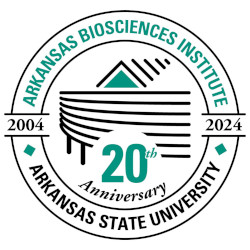Blood meal identification reveals extremely broad host range and host-bias in a temporary ectoparasite of coral reef fishes
Document Type
Article
Publication Title
Oecologia
PubMed ID
37951847
MeSH Headings (Medical Subject Headings)
Humans; Animals; Coral Reefs; Host Specificity; Fish Diseases (parasitology); Fishes; Meals; Isopoda (parasitology)
Abstract
Appreciation for the role of cryptofauna in ecological systems has increased dramatically over the past decade. The impacts blood-feeding arthropods, such as ticks and mosquitos, have on terrestrial communities are the subject of hundreds of papers annually. However, blood-feeding arthropods have been largely ignored in marine environments. Gnathiid isopods, often referred to as "ticks of the sea", are temporary external parasites of fishes. They are found in all marine environments and have many consequential impacts on host fitness. Because they are highly mobile and only associated with their hosts while obtaining a blood meal, their broader trophic connections are difficult to discern. Conventional methods rely heavily on detecting gnathiids on wild-caught fishes. However, this approach typically yields few gnathiids and does not account for hosts that avoid capture. To overcome this limitation, we sequenced blood meals of free-living gnathiids collected in light traps to assess the host range and community-dependent exploitation of Caribbean gnathiid isopods. Using fish-specific COI (cox1) primers, sequencing individual blood meals from 1060 gnathiids resulted in the identification of 70 host fish species from 27 families. Comparisons of fish assemblages to blood meal identification frequencies at four collection sites indicated that fishes within the families Haemulidae (grunts) and Lutjanidae (snappers) were exploited more frequently than expected based on their biomass, and Labrid parrotfishes were exploited less frequently than expected. The broad host range along with the biased exploitation of diel-migratory species has important implications for the role gnathiid isopods play in Caribbean coral reef communities.
First Page
349
Last Page
360
DOI
10.1007/s00442-023-05468-w
Publication Date
12-1-2023
Recommended Citation
Hendrick, Gina C.; Nicholson, Matthew D.; Pagan, J Andres; Artim, John M.; Dolan, Maureen C.; and Sikkel, Paul C., "Blood meal identification reveals extremely broad host range and host-bias in a temporary ectoparasite of coral reef fishes" (2023). Arkansas Biosciences Institute. 12.
https://arch.astate.edu/abi/12


